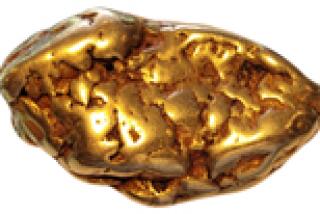U.S. Makes First Pledge for New Holocaust Fund
LONDON — The United States will donate up to $29 million to an international fund for Holocaust survivors, hoping that other countries at an unprecedented 40-nation conference on looted Nazi gold opening here today will follow its lead.
The American promise is for $4 million now and up to $25 million more over the next three years, said Stuart E. Eizenstat, an undersecretary of State who is heading the U.S. delegation to the conference. “The United States is doing this, even though we have no claim to the remaining gold, to show our leadership and to encourage other countries,” he said.
Summoned by Britain, officials at the three-day meeting aim to fill gaps and jar consciences as historians piece together the wholesale looting by the Nazis of gold from central banks and individuals in their rampage across Europe during World War II.
Half a century later, the trail of stolen gold is cluttered by fuzzy history, incomplete accounting, rancorous accusations of blame and indignant denials. Eizenstat said he expects a number of countries to follow the U.S. lead and at the conference announce contributions to the Holocaust fund.
The fund would distribute its resources via nongovernmental organizations to individual Holocaust survivors, to communities and to educational projects aimed at assuring that history is not repeated.
British officials estimate that there are 350,000 Holocaust survivors still alive.
When the war ended, the victorious Allies recovered 337 metric tons of Nazi-looted gold, worth about $3.5 billion at today’s prices. Ever since, a Tripartite Gold Commission composed of the United States, Britain and France has been parceling out the gold to 11 nations from which it was stolen.
Now the last payment of about $54.5 million is due before the commission concludes its work. Britain and the United States are urging the 11 recipient nations to forgo the last payment and contribute it to the new Holocaust fund, which will be held at the Federal Reserve Bank in New York with Britain the account holder.
Nearly 90% of the gold recovered by the Allies has gone to the central banks of Belgium, the Netherlands, Austria and Italy, from where it was stolen. The other seven recipient nations are: Albania, the Czech Republic, Greece, Luxembourg, Poland, Slovakia and the republics of the former Yugoslav federation.
“This generation’s responsibility is to learn from mistakes of the past and do imperfect justice in an imperfect world,” Eizenstat told reporters.
Contributing countries would decide what existing agencies should receive money and for what projects, he said, but priority would go to those who survived the Nazis only to fall under Communist rule.
With the average age of Holocaust survivors in the mid-70s, the fund will act quickly and probably wind up its activities in about five years, he said.
Money may grab most of the headlines at the conference, which concludes Thursday. But British organizers call it an academic landmark for historians, as well as a belated moral achievement for the international community--52 years after the war ended.
Lord Janner, a member of Britain’s Parliament who chairs the Holocaust Educational Trust, called the conference “a moral miracle . . . a monumental first step toward justice.”
It was Janner, demanding that nations come together “to examine their consciences and archives,” who persuaded British Foreign Minister Robin Cook to call the conference. Speaking last week in the Warsaw Ghetto, site of a Jewish uprising against the Nazis during the war, Cook said it is time for the international community to “set the record straight” and end the wrangling that has denied Jews and other Nazi victims knowledge of what happened to gold and other items stolen from them.
Delegates to the conference include five organizations representing world Jewry. Their particular focus will include Switzerland, whose banks were principal hosts for Nazi gold, and the Holy See, whose archives are among the most prominent of a diminishing few that remain closed.
Elan Steinberg, executive director of the World Jewish Congress, said Monday that by 1945 the Nazis had looted gold then worth $850 million, anywhere from 10% to 30% of it taken from individuals.
The Tripartite Gold Commission was charged with restoring monetary gold from occupied countries. But Steinberg said it also knowingly returned tons of gold that was nonmonetary--meaning gold that originated with individuals and was often smelted into bars and stamped with bogus markings.
“I applaud the idea of a fund, but it does not reflect the true amount of nonmonetary gold the United States and Britain recovered at the end of the war,” said Rabbi Abraham Cooper at the Simon Wiesenthal Center in Los Angeles. “The gold bug did not just infect the Swiss.”
Swiss institutions are facing class-action lawsuits in the United States from Holocaust survivors.
Hailing what he called Switzerland’s courage in confronting an issue that has damaged its image, Eizenstat noted that a $190-million fund for survivors has already been assembled and that another $4.5 billion is pending the results of a Swiss national referendum.
In Bern, the Swiss capital, an international panel of historians appointed by the government estimated Monday that the Nazis stole $146 million in gold from Holocaust victims and other individuals.
Describing their 23-page report as the first to track the flow of gold in and out of the Reichsbank, Adolf Hitler’s central bank, the historians said that Swiss commercial banks took in about $61.2 million, three times as much gold from Nazi Germany as previously assumed.
The Swiss central bank took in $389.2 million, most of it monetary gold looted from the reserves of occupied countries, the panel of nine historians said.
More to Read
Sign up for Essential California
The most important California stories and recommendations in your inbox every morning.
You may occasionally receive promotional content from the Los Angeles Times.










